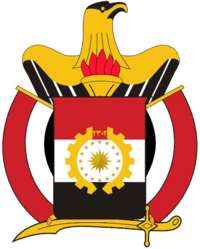Politics of Zorasan
 |
|---|
| This article is part of a series on the politics and government of Zorasan |
The politics of Zorasan takes place within the framework established by the constitution. The country is a federal parliamentary republic in which state-level governments enjoy a high degree of autonomy and residuary powers. Executive power is divided, being vested with the Council of Ministers which is headed by the First Minister and the Central Command Council. The First Minister works coherently along with the bicameral parliament and the judicature. Stipulations set by the constitution provide a delicate check and balance of sharing powers between executive, legislative, and judicial branches of the government.
The government is totally independent of the legislative branch that consists of a bicameral parliament. The Upper House is the Superior Assembly whilst the Popular Assembly is the lower house. The Judicial branch forms with the composition of the Supreme State Court as an apex court, alongside the high courts and other inferior courts. The judiciary's function is to interpret the Constitution and federal laws and regulations.
Zorasan is de-jure a non-partisan parliamentary democracy, however, government policies and actions since 2015 have resulted in the return of political alliances. The overwhelmingly dominant True Way alliance currently controls a supramajority in parliament and holds majorities in every state-level legislature. Other alliances include the pro-democracy Union Solidarity and Reform Association, the centrist People's Moderation and Respect Alliance and the left-wing People's Movement for Progress. Zorasan's military also wields immense influence through the Central Command Council, with the right to appoint ministers and having the final say on several key areas of government.
The XX rated Zorasan as an "authoritarian regime" in 2019.